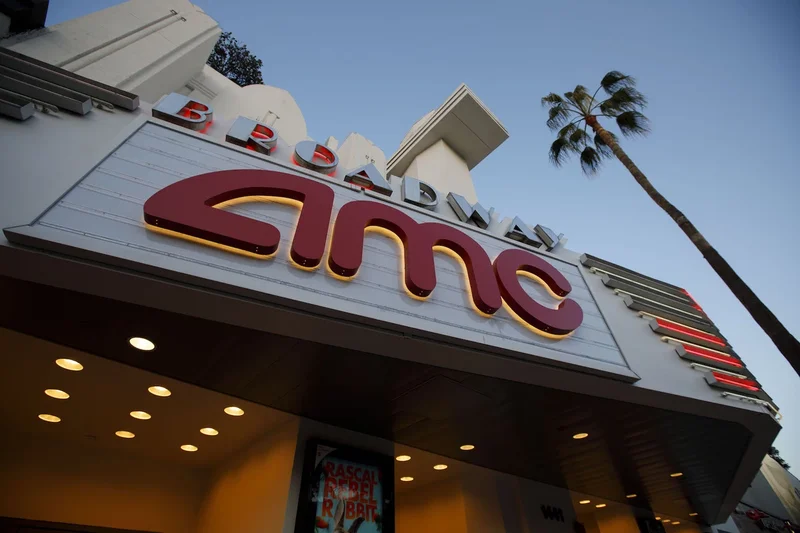So, Netflix and AMC are friends now. They’re holding hands, skipping through a field of popcorn, and bringing the two-hour Stranger Things finale to 350 theaters for New Year's. Isn't that just precious? You’re supposed to see this as a grand gift to the fans, a celebration of a beloved series, a sign that the streaming giant has finally seen the light and embraced the magic of the silver screen.
Give me a break.
This isn't a celebration; it's a surrender. It’s the final, desperate act in a cold war that Netflix decisively lost. For years, they’ve treated movie theaters like a dying format, a relic to be starved out of existence by the convenience of the algorithm. Now, suddenly, they’re playing ball? Please. You don’t go from arch-nemesis to business partner overnight unless someone has a gun to your head. And in this case, the gun is a director’s chair walking out the door.
The "Fan Experience" Charade
Let's rewind the tape just a few weeks. The Duffer brothers, the creators of this whole phenomenon, are on record in Variety saying they dreamed of a theatrical release. They wanted fans to experience their work with booming sound and a massive picture, to share the moment together in a dark room, sticky with spilled soda. You can almost picture them, two passionate filmmakers, practically begging to see their baby on the big screen.
And what was Netflix's official response? Their chief creative officer, Bela Bajaria, essentially patted them on the head and dismissed the idea. The show, she claimed, didn't suffer from a "lack of conversation or community." Translation: "We own you, we own the show, and we'll release it how we damn well please. Now get back to work." It was the kind of corporate arrogance that has defined Netflix for a decade. The algorithm knows best, and the algorithm says stay home.
So what changed between then and now? Did Bajaria have a sudden cinematic epiphany while watching KPop Demon Hunters? Did the ghost of Hollywood past visit her in the night? No. This is a PR move. No, "PR move" is too clean—this is a corporate hostage video. You can almost picture the emergency board meeting. The fluorescent lights humming over a polished mahogany table, the air thick with the smell of burnt coffee and panic as some executive points to a graph showing their top talent bleeding out to rival studios. This ain't about the fans; it's about stemming the flow.

What I want to know is, did they even look the Duffers in the eye when they greenlit this? Or was it just a cold, calculated email sent from a VP of Strategic Capitulation?
Follow the Money... and the Exit Signs
Here’s the part they hope you’ll ignore. The Duffer brothers, the golden geese who built the entire town of Hawkins, have signed a new deal with Paramount. They’re leaving. And the reason floating around is Netflix's "longtime aversion to theatrical releases."
Let that sink in. The creators of arguably their biggest original IP are walking away because the company that made them famous refuses to respect the medium of film.
This Stranger Things theatrical event isn’t a celebratory send-off. It’s a desperate, public peace offering. It’s Netflix standing on the front lawn of the Duffer brothers’ new house at Paramount, holding a boombox over its head, begging them to think about what they’re throwing away. It’s a message to every other high-profile director and showrunner on their roster: "See? We can change! We love theaters now, we promise! Please don't leave us..."
Netflix’s whole business model was built on being the disruptor, the lone wolf that didn't need the old system. But now, that system is biting back, and as a result, Strange Things Are Happening Between Netflix and Movie Theaters. Top-tier talent doesn't just want a massive paycheck; they want cultural impact. They want their work to feel like an event. A streaming-only release, no matter how many people watch it, often just evaporates into the digital ether. It's content, not cinema. The Duffer brothers knew this, and they voted with their feet. They think we're all just dumb consumers who dont connect the dots.
This is like a stubborn parent who refuses to give their teenager the car keys for years, insisting it's too dangerous, only to finally toss them over after the kid has already called an Uber and is halfway out the door. The gesture is hollow, it's too late, and it’s born from a loss of control, not a change of heart. And honestly, it makes you wonder... who else is about to call an Uber? How many other A-list creators are using the "theatrical release" card as leverage in their contract negotiations right now?
It's Called Leverage, Look It Up
So, no, I'm not buying the heartwarming story of corporate synergy and fan appreciation. This is a white flag. This is Netflix, the self-proclaimed king of content, finally admitting it can't go it alone. It needs theaters—not for the box office receipts from a two-night event, but for the cultural validation that keeps top talent from jumping ship. The Duffer brothers called their bluff, and Netflix blinked. This isn't the beginning of a beautiful friendship with AMC Theatres. It's the beginning of a new era for Netflix—one where they are no longer the ones dictating all the terms.
